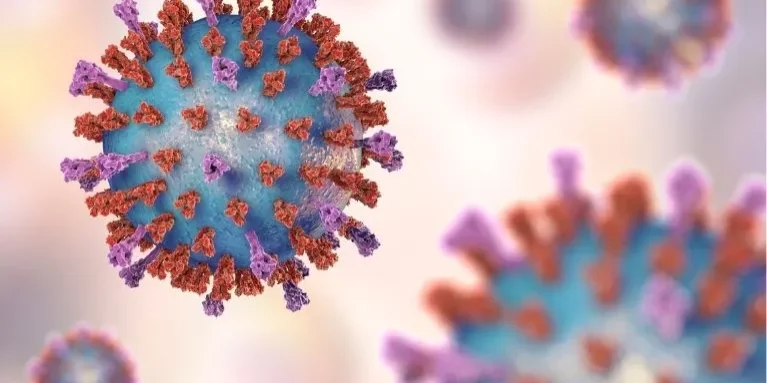
What Is Respiratory Syncytial Virus (RSV)?
Respiratory syncytial (sin-SISH-uhl) virus (RSV) is a common virus that can infect the nose, throat, and lungs, and can make it harder to breathe. It spreads when an infected person coughs, sneezes, or kisses someone, sending tiny droplets into the air. You can also get it by touching something with the virus on it and then touching your eyes, nose, or mouth.
RSV can live for many hours on hard surfaces like tables and cribs, but it does not last as long on soft surfaces like tissues or hands. Children are often exposed to RSV outside the home at school or daycare and can bring it home to others. RSV is so common that almost all children will have had it by their 2nd birthday.
While RSV can be serious for very young children and older adults, it can affect people of any age. Roughly 80% of children younger than age 2 years who are hospitalized with RSV do not have risk factors.
Burden
Even though RSV often causes mild, cold-like symptoms, it can be serious for infants, toddlers, and older adults, and can lead to severe illness and hospitalization. In the US, RSV is the most common cause of hospitalization in children younger than 1 year old.
- Each year in the US, RSV leads to approximately 2.1 million outpatient visits and 58,000-80,000 hospital stays among children younger than 5 years
RSV is also becoming more recognized as a major cause of respiratory illness in adults.
- Each year in the US, RSV is estimated to cause 100,000-160,000 hospitalizations in adults age 60 years and older
The actual burden among all age groups is likely even higher due to underreporting of RSV infections.
Those at highest risk for severe disease from an RSV infection include:
- premature infants and infants age 6 months and younger
- adults with chronic heart or lung disease or certain other underlying medical conditions, including diabetes or obesity
- adults with weakened immune systems
- older adults, especially those who are frail or live in a nursing home
For additional information, read the NFID Call to Action: Reducing the Burden of RSV across the Lifespan (2022).
Symptoms
RSV symptoms are similar to those of other respiratory viruses, including influenza (flu) and COVID-19, and may include runny nose, coughing, sneezing, fever, loss of appetite, and wheezing.
In young infants, the only symptoms may be fussiness, less activity, and trouble breathing. People with RSV usually start showing symptoms 4-6 days after getting infected. Healthy adults may not have many symptoms but can still spread the virus to others.
Most people with RSV are contagious for 3-8 days and get better in 1-2 weeks. However, some infants and people with weakened immune systems can keep spreading the virus for up to 4 weeks, even after they feel better.
In the US, RSV typically spreads in fall and winter, like other seasonal viruses such as flu. Because RSV symptoms are similar to flu or COVID-19, it can be hard to know if someone has RSV without a confirmed lab test.
Prevention
The best way to help prevent serious RSV-related illness is to get immunized as recommended.
Other important ways to help stop the spread of RSV include:
- Cover coughs and sneezes
- Wash hands often with soap and water for at least 20 seconds
- Avoid close contact with others who are sick
- Avoid touching your face, particularly eyes, nose, and mouth
- Clean frequently touched surfaces
- Consult a healthcare professional if you have cold-like symptoms that linger or worsen
Vaccines and preventive monoclonal antibodies can help protect against RSV:
Adults: A single lifetime dose of RSV vaccine is recommended to protect certain adults who are at increased risk of severe RSV disease.
- All adults age 75 years and older
- Adults age 50–74 years who:
- Have certain chronic health conditions, such as lung disease, heart disease, or weakened immune systems
- Live in nursing homes
Infants: There are 2 ways to help protect infants from severe RSV—either a maternal RSV vaccine given to the pregnant mother or an RSV monoclonal antibody given to the infant
- For pregnant women, 1 dose of the maternal RSV vaccine is recommended during weeks 32-36 of pregnancy during September-January
- For infants younger than age 8 months born to mothers who did not receive a maternal RSV vaccine during pregnancy, 1 dose of monoclonal antibody (either nirsevimab or clesrovimab) should be given to infants shortly before the RSV season, or within 1 week after birth if born during October-March in most of the US.
- An additional dose of nirsevimab before the child’s second RSV season is also recommended for a small group of young children age 8-19 months who are at increased risk for severe RSV.
Treatment
There are currently no specific antiviral medications or treatments for RSV disease. The primary treatment for RSV is supportive care and may include oxygen and respiratory care treatments.
Updated January 2026
Sources: American Academy of Family Physicians, American Academy of Pediatrics, American College of Obstetricians and Gynecologists, Centers for Disease Control and Prevention
Related Resources
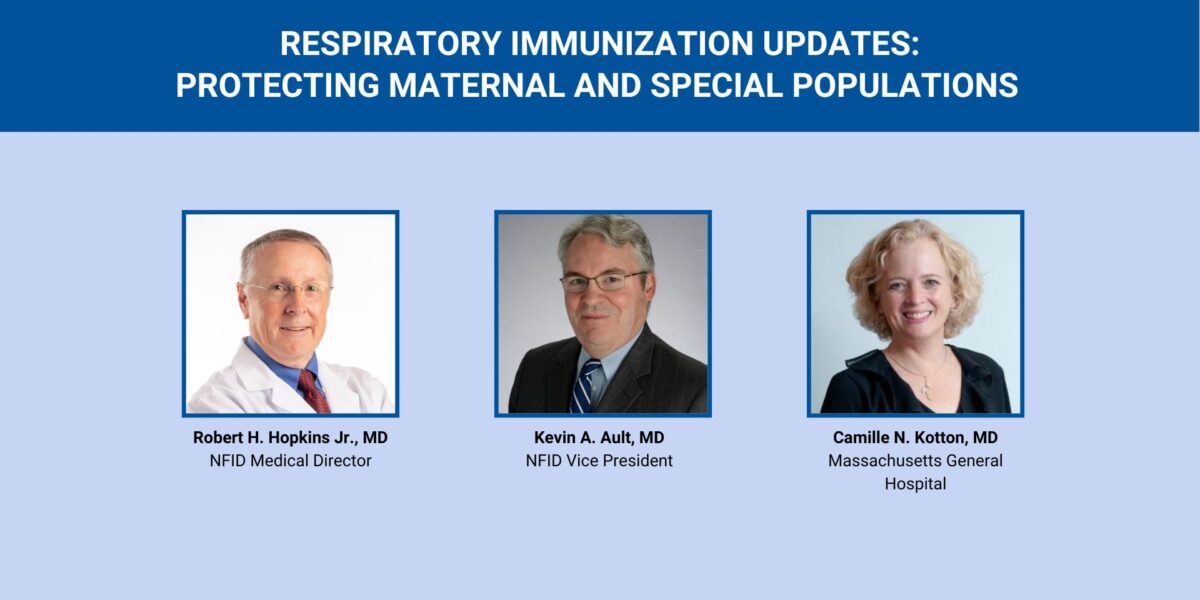
Respiratory Immunization Updates: Protecting Maternal and Special Populations
In this recorded webinar, NFID hosts a discussion on the importance of respiratory vaccination among pregnant women and immunocompromised individuals …
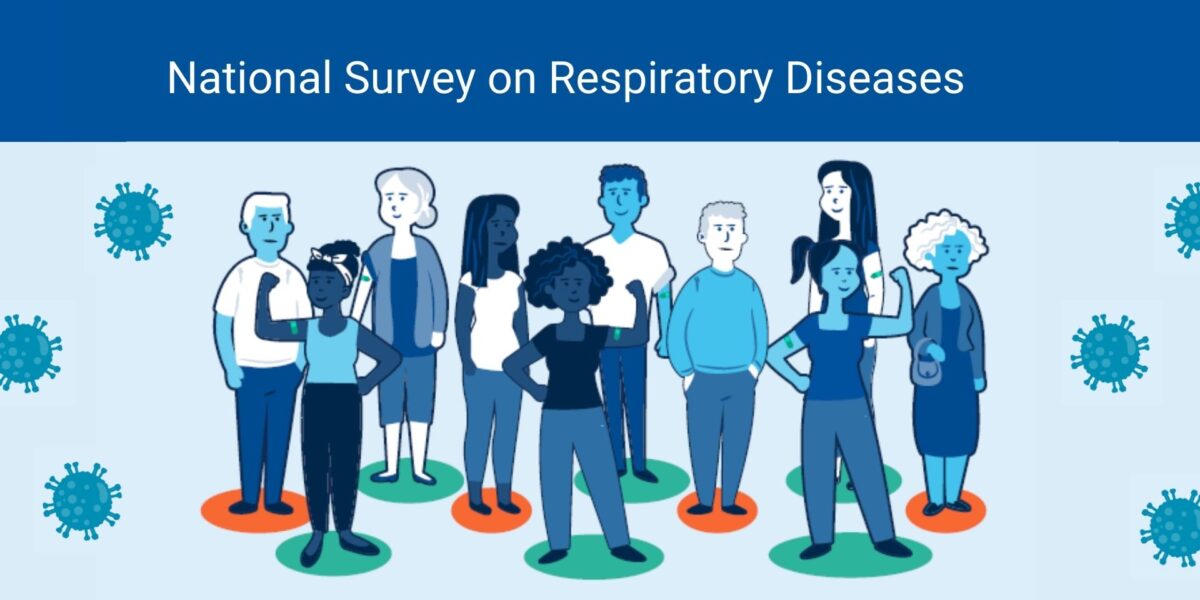
2025 National Survey on Respiratory Diseases
The 2025 national survey examines attitudes and behaviors regarding flu, RSV, COVID-19, and pneumococcal disease.
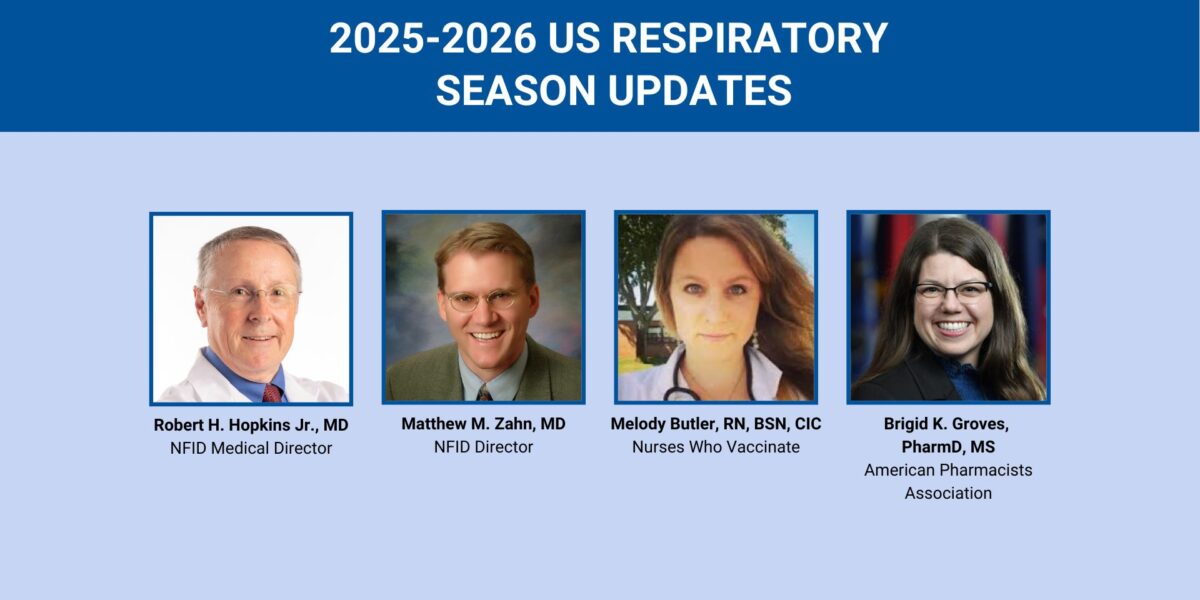
2025-2026 US Respiratory Season Updates
In this recorded webinar, NFID hosts a discussion highlighting the importance of immunization to help protect against severe illness during the upcoming respiratory season …
Related Posts

5 Reasons Why Vaccines Are Good for Your Heart
For people with heart disease, getting vaccinated is as important to staying healthy as diet and exercise

NFID Calls for Evidence-Based Guidance as Many People Skip Life-Saving Respiratory Vaccines
Survey reveals misconceptions about vaccines and declining vaccination rates
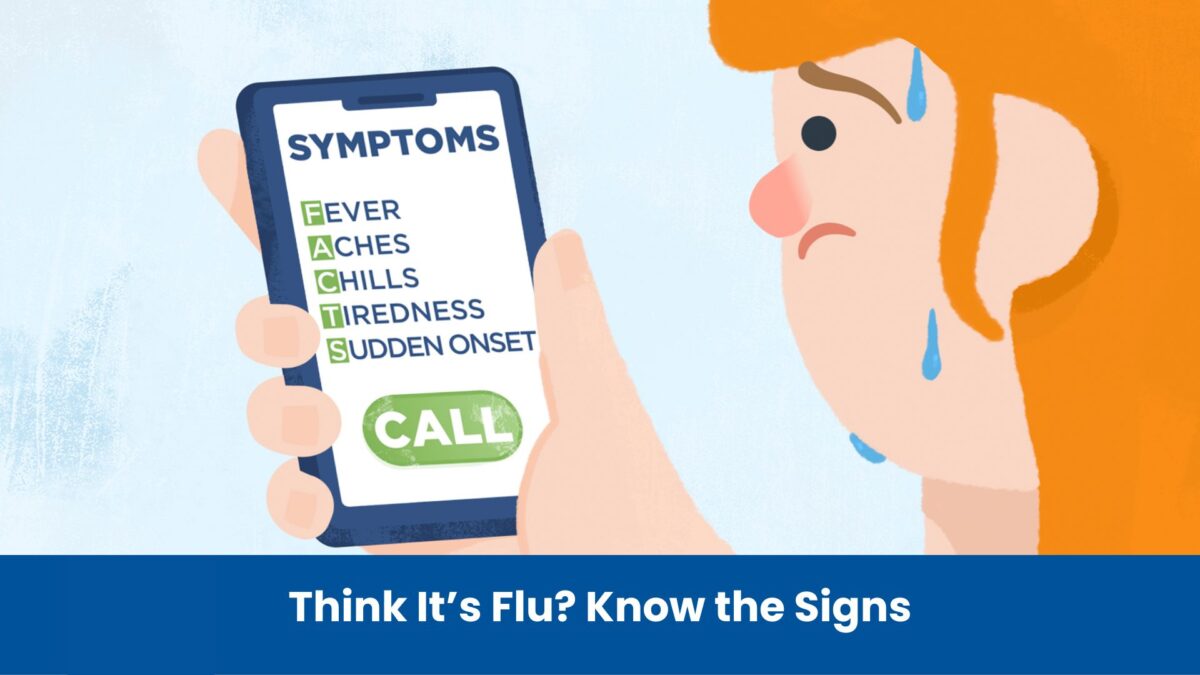
What You Need To Know This Respiratory Season
From antivirals to immunization, here’s what you need to know to help protect yourself and others from flu, COVID-19, RSV, and pneumococcal disease.
